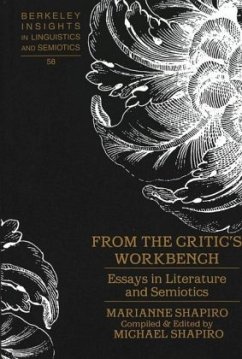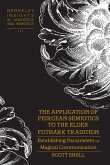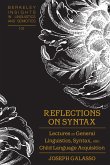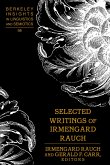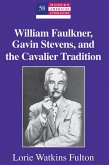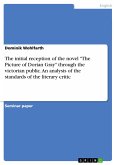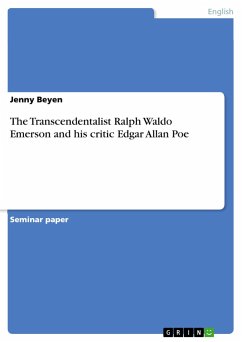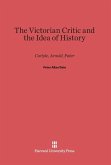This book comprises twenty-two chapters, including previously unpublished material, written over the entire span of Marianne Shapiro's working life. Its opening section on the European heritage begins with a long essay on the Aeneid that breaks new interpretative ground by examining the epic from the perspective of Virgil's implicit prescriptions for leaders and leadership. Chapters on Dante add to the store of knowledge on his minor works as well as the Comedy, and are followed by close readings of Petrarch and Provençal poetry. The American and comparative literature section features an analysis of John Ashbery's New Spirit and a page-by-page commentary on Nabokov's Lolita and Pnin. The book is rounded out by three chapters in a semiotics section, the highlight of which is an analysis of the Christian Trinity based on a deep understanding of Peirce's sign theory.
Bitte wählen Sie Ihr Anliegen aus.
Rechnungen
Retourenschein anfordern
Bestellstatus
Storno

